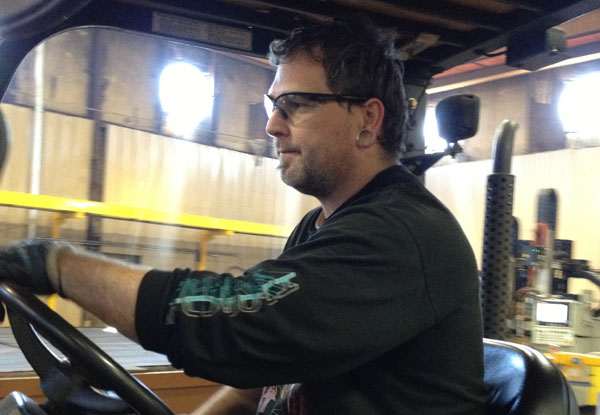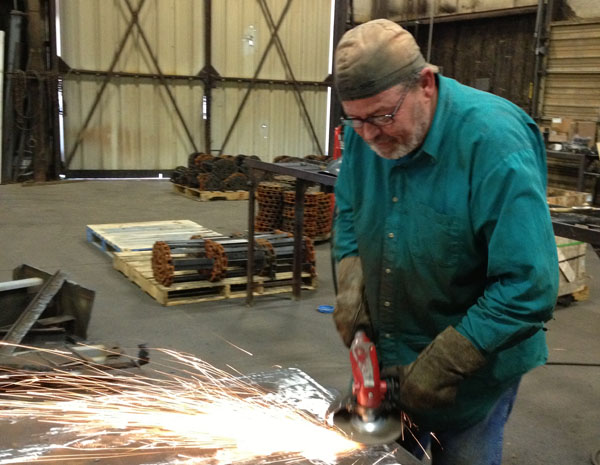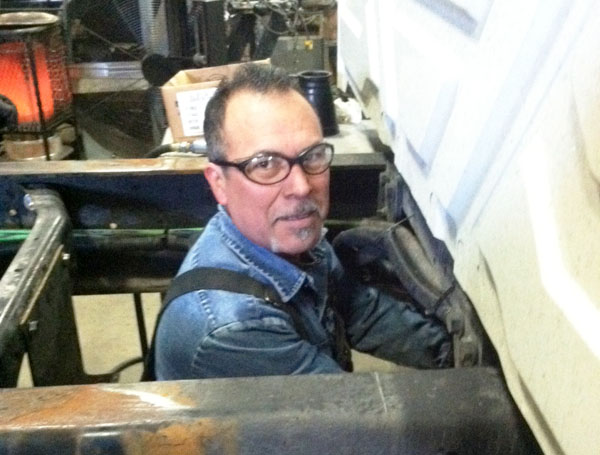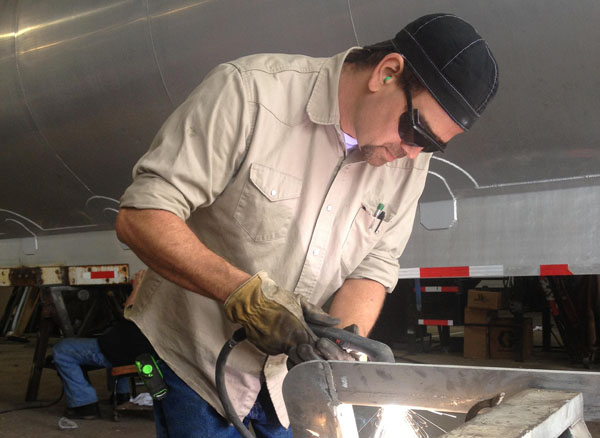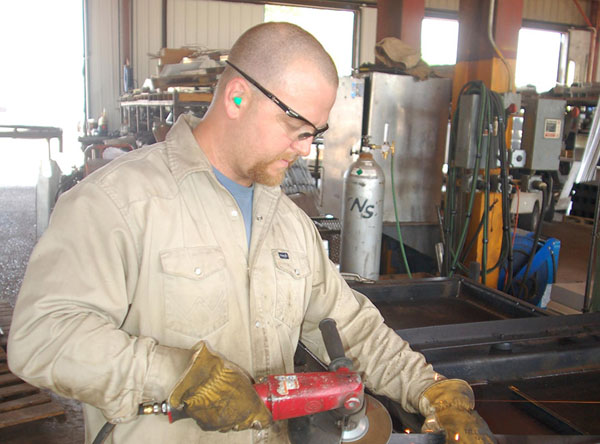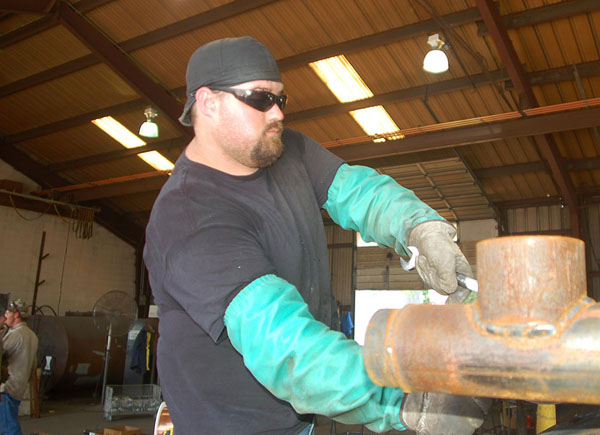Brandon O’Neal currently works in the Tank Shop, but in the 6 years he has been at Ledwell, he has worked in every shop on property. Although he enjoyed the variety of working in different areas, the Tank Shop is his favorite. He enjoys the challenges that come with working on water tanks. He considers the current project he is working on to be the most challenging because it’s highly customized.
Prior to Ledwell, Brandon worked for 5 years in the restaurant industry. When his restaurant closed, he came to work for a company that had provided for his family in the past. Aubrey O’Neal, Brandon’s grandfather, had worked in the Pump Room for 32 years. Brandon fondly remembers visiting the Ledwell shop with his grandfather and hearing stories about his work. It was Aubrey who first taught him how to weld.
Brandon loves his job and sees himself working at Ledwell for at least 32 years like his grandfather. Brad Stringer, Brandon’s foreman, speaks very highly of him. “There is a lot you can say about Brandon as far as being an employee. He is a very hard worker, very dependable, and takes pride in his work. I don’t know of any job that I have asked him to do that he hasn’t jumped right in and gotten it done. He is an asset to the company.”
He grew up moving around Northeast Texas, living in a few small towns around Sulphur Springs and Dallas. In 1999, he moved to Fouke, Arkansas and has been there since. When not working, Brandon enjoys coaching his stepson’s baseball team and playing paintball. In December 2010, Brandon opened his own paintball park, Paintball Junkies, which he currently owns and operates.
